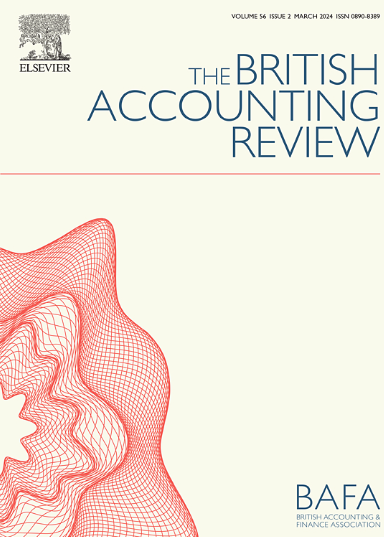碳风险、债务成本和杠杆调整的动态变化
IF 9.4
3区 管理学
Q1 BUSINESS, FINANCE
引用次数: 0
摘要
我们评估了2006-2020年期间碳风险对企业调整杠杆速度的影响。我们主要解决的问题是:国家碳风险是否影响企业层面的调整速度(SOA)?为了解决这个主要问题,我们的研究进一步根据借款成本和碳风险对样本中的公司进行了分类。通过这样做,我们报告了借贷成本如何影响公司的行为。我们的研究重点是能源部门,这是一个重要的碳排放部门。我们的研究使用物理气候风险变化作为碳风险的代理,碳风险的第二个代理是通过将国家的碳排放缩放到公司层面来获得的。研究发现,碳风险与调整速度呈正相关;具体而言,借贷成本低的企业比借贷成本高的企业向目标调整的速度更快。然而,高(低)费用和高碳风险的企业没有理由改变其杠杆率。此外,我们还研究了盈余收益率、交易合同成本、执行成本对碳风险和杠杆调整速度的交互效应。我们的研究结果证实,交易合同成本和执行成本的影响是显著的。《巴黎协定》后的时期揭示了碳风险与杠杆SOA之间强烈的正相关关系。本文章由计算机程序翻译,如有差异,请以英文原文为准。
Dynamics of carbon risk, cost of debt and leverage adjustments
We evaluate the effects of carbon risk on the speed at which corporations adjust their leverage for the period 2006–2020. Primarily we address the question: Does national carbon risk impact firm-level speed of adjustment (SOA)? To address the main question, our study further classifies the companies in the sample based on borrowing costs and carbon risk. By doing so, we report on how borrowing costs may influence the company's conduct. Our research focuses on the energy sector, which is an important sector for emitting carbon. Our study uses physical climate risk changes as a proxy for carbon risk, and the second proxy for carbon risk is obtained by scaling the country's carbon emissions to the company level. We find that the carbon risk is positively related to the speed of adjustment; specifically, the firms with low cost of borrowing show a faster speed of adjustment toward the target than those whose cost of borrowing is higher. However, businesses with high (low) expenses and high carbon risk do not see a reason to change their leverage. In addition, we also examine the interaction effects of earnings yield, transaction contract cost, enforcement cost on carbon risk, and the speed of leverage adjustment. Our results confirm that the effects of transaction contract costs and enforcement costs are significant. The post-Paris Agreement period reveals a strong positive relationship between carbon risk and leverage SOA.
求助全文
通过发布文献求助,成功后即可免费获取论文全文。
去求助
来源期刊

British Accounting Review
BUSINESS, FINANCE-
CiteScore
8.60
自引率
3.90%
发文量
39
审稿时长
76 days
期刊介绍:
The British Accounting Review*is pleased to publish original scholarly papers across the whole spectrum of accounting and finance. The journal is eclectic and pluralistic and contributions are welcomed across a wide range of research methodologies (e.g. analytical, archival, experimental, survey and qualitative case methods) and topics (e.g. financial accounting, management accounting, finance and financial management, auditing, public sector accounting, social and environmental accounting; accounting education and accounting history), evidence from UK and non-UK sources are equally acceptable.
 求助内容:
求助内容: 应助结果提醒方式:
应助结果提醒方式:


